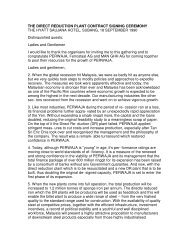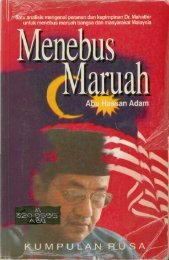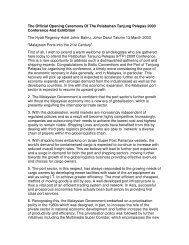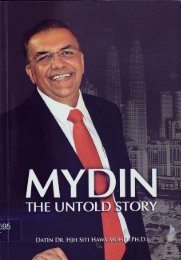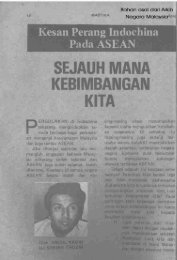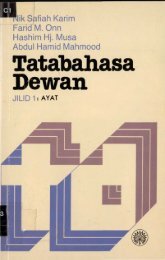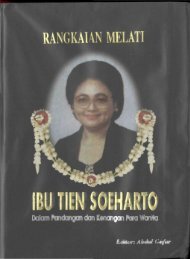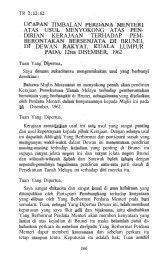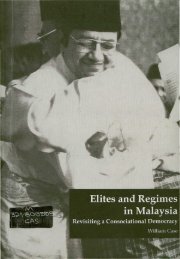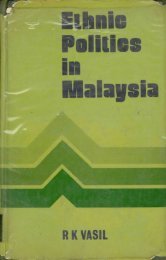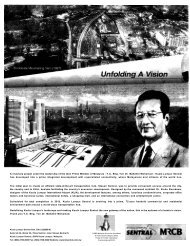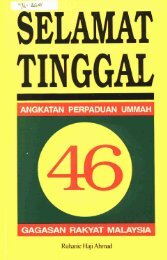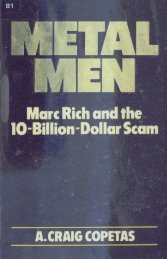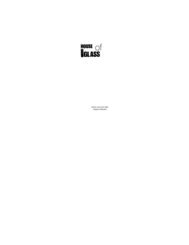TRIBUTE ABDUL - Perdana Library
TRIBUTE ABDUL - Perdana Library
TRIBUTE ABDUL - Perdana Library
You also want an ePaper? Increase the reach of your titles
YUMPU automatically turns print PDFs into web optimized ePapers that Google loves.
FRANK SULLIVAN<br />
The British newspapers, however, amazed me with the amount<br />
of inside information they published about this meeting, using such<br />
terms as "Show-down". "Crisis", "Apartheid row" or "Flare<br />
up". Amazed me because I know none of their information came<br />
from the Malayan mission. The Conference lasted two hours and<br />
was held in the Cabinet Room. "The Daily Telegraph" described<br />
the meeting as the stormiest in the history of such Conferences.<br />
Reading these reports the public learned that Mr. Diefenbaker<br />
objected to Mr. Louw's remarks because his country's views on<br />
apartheid were crystal clear. They were also informed that several<br />
Prime Ministers objected to Mr. Louw's remark that some had<br />
supported him. And that afternoon Ghana announced that it had<br />
rescinded its invitation to Mr. Louw.<br />
After this eventful day, the Conference resumed its normal<br />
course, covering a wide variety of important subjects, including<br />
Malaya's own proposal for technical aid, which was very well<br />
received. But the Conference was still not finished with apartheid.<br />
This key question came up again and again during what the Press, or<br />
some sections of it, called "the Battle of the Communique".<br />
Officials sat past mid-night drafting the communique. They were in<br />
general agreement on most points, but disagreed on aspects relating<br />
to South Africa, and these were referred to the Prime Ministers who<br />
debated the final form in two sessions before reaching final<br />
agreement. It is no secret now that at one point the Conference<br />
adjourned to enable the unrepentant Mr. Louw to ring up his Prime<br />
Minister. When he returned, there was agreement.<br />
As might have been expected, the communique was a compromise,<br />
but it still contained much solid food for thought for South<br />
Africa. It reaffirmed the tradition of non-interference in domestic<br />
matters, but it also stated that the racial situation of South Africa<br />
was discussed. In addition, all the Prime Ministers and Mr. Louw<br />
emphasised that the Commonwealth itself was a multi-racial<br />
association and expressed the need to ensure good relations between<br />
all member States and peoples of the Commonwealth. The Conference<br />
welcomed Nigeria as a future member, and also welcomed<br />
Ghana to remain a member after becoming a Republic, but there<br />
59



